What’s this? An autobiography by Stuart Hall? Wasn’t he one of the guys who put the Eng. Lit. departments out to grass by arguing that it was senseless to talk about fictional characters as if they were real people when the truth was that real people were fictional constructs? Indeed he was; but don’t go thinking that just because Hall embarked, shortly before his death in 2014, on writing his life story, that he’d given up on the decentred subject. As he remarks early on in Familiar Stranger, despite our need to grasp our inner being, ‘we’ll never be ourselves’.
It’s a nice line. It’s also a rare moment of clarity in a memoir that can be as cloudy and windy as a Turner sea study. Unlike many of his epigones, Hall is never exactly obfuscatory. But nor is he often exact. Admittedly, he was gravely ill when the book was conceived (it began life as a dialogue between him and his former student Bill Schwartz, who subsequently edited it into something like a traditional autobiographical narrative). But Tony Judt was on his deathbed when he and Timothy Snyder embarked on the conversations that became Thinking the Twentieth Century, and there isn’t a sentence in that book that’s not pure crystal.
Hall, on the other hand, seems to have been able to think only in periphrastic boilerplate. ‘Identity is never singular but is multiply constructed across intersecting and antagonistic discourses, practices and positions.’ After two or three goes at such stuff you get the gist. But since the gist has been put rather better by others, including Auden, Browning and Emerson, you can’t help wondering whether the polysyllabic mash-up isn’t just the usual academic camouflage for paucity of thought. (Like the don who knows he drones on, Hall begins chapters by telling you what he’s already told you, before telling you what he’s about to tell you.)
Fortunately, the straight biographical bits of Familiar Stranger are more nourishing. Hall was born in 1932 in Kingston, Jamaica into an ‘upper-middling’ family of doctors and lawyers. In earlier generations the family had owned slaves, and the ‘social striving’ of Hall’s mother and grandmother meant he was always hearing them decry some or other light-skinned local for ‘trying to “pass” ’.
Aggrieved by the family’s insistence on respectability, and particularly by his mother’s treatment of her servants and handymen (‘whom she paid nothing so vulgar as a “wage for the job”, but rather a gift for feudal services rendered’), the young Hall was drawn towards Jamaica’s burgeoning independence movements. By the time he took the boat to England in 1951, to read English at Oxford on a Rhodes scholarship, he was seeing everything through a lens of imperialism. A few months after he arrived, and with Churchill back in Downing Street, Hall felt himself finally ‘becoming a West Indian’.
This sense of dislocation was one of the factors in his choosing the work of Henry James (whose long, coiling sentences he had mimicked in youthful attempts at fiction) as the subject for his (unfinished) doctoral thesis. ‘His work resonated deeply with me’, Hall says, because ‘in him I could witness elements of my own life… poised as I was between two worlds’. Alas, T. S. Eliot wasn’t so lucky. Though the teenage Hall had thrilled to The Waste Land — ‘magic!’– by the time he got to Oxford his interest had waned. ‘What,’ he wondered, ‘had any of it to do with Jamaica and my life?’ Yes, and while we’re about it, whatever happened to Eliot’s ‘common pursuit of true judgment’?
Because it is not that much of a leap from Hall’s perhaps half-conscious notion that for art to matter to us it must mirror our own experience, to the nannyish, know-nothing tedium of the cultural studies departments he would go on to invent. Can’t get on with Eliot? Why not write about EastEnders? Bored by Madame Bovary? How about examining the patriarchal underpinnings of Mrs Brown’s Boys?
All good fun, I’m sure. But as Miss Brodie famously explained, the Latin roots of our word education mean to lead out. And where is the pupil being led, if not into the wider world of experience and knowledge? Patently a decent man who wanted a better life for everyone, Hall genuinely believed that by alerting his students to the ideological subtexts of their favourite TV shows or pop songs (at one point he claims to be able to hear ‘the less chauvinistic bits’ of Elgar), they might liberate themselves from the hegemonic ‘master codes of the dominant culture’. In fact, by teaching kids that it’s enough to read or watch or listen to what already interests them, cultural studies has served only to trap them in the straitened cell of the self.
Mind you, Hall’s own purview was pretty narrow. James and Eliot and ‘the captivating prose of Karl Marx’ aside, he seems never to have read anything that wasn’t published during his lifetime. When he asks whether our ‘psychic formation… ultimately determines where we stand… [or] are we positioned by discourse and power?’ he really appears to have thought that the question was first put by Foucault, and not considered by Locke and Rousseau and other thinkers going back to Aristotle and Heraclitus.
And while there is no reason to doubt those friends and colleagues who have spoken of Hall’s warmth and generosity, nor is there any denying that he was lacking on the humour front. Back in the early 1960s his friend and colleague the Marxist historian Samuel Raphael opened the Partisan Café — a Soho diner in which the New Left might convene. ‘Raphael’s preferred model,’ Hall tells us, was ‘the Left cabaret culture of prewar Berlin.’ If that’s not a cult studs prof’s chance to mention Peter Cook’s Establishment Club — which Cook hoped would be like ‘those wonderful Berlin cabarets… that did so much to stop the rise of Hitler and prevent the outbreak of the second world war’ — then I’m a ‘significant vector through which competing, disparate histories coalesced and entered collective consciousness’.
Got something to add? Join the discussion and comment below.
Get 10 issues for just $10
Subscribe to The Spectator Australia today for the next 10 magazine issues, plus full online access, for just $10.
You might disagree with half of it, but you’ll enjoy reading all of it. Try your first month for free, then just $2 a week for the remainder of your first year.

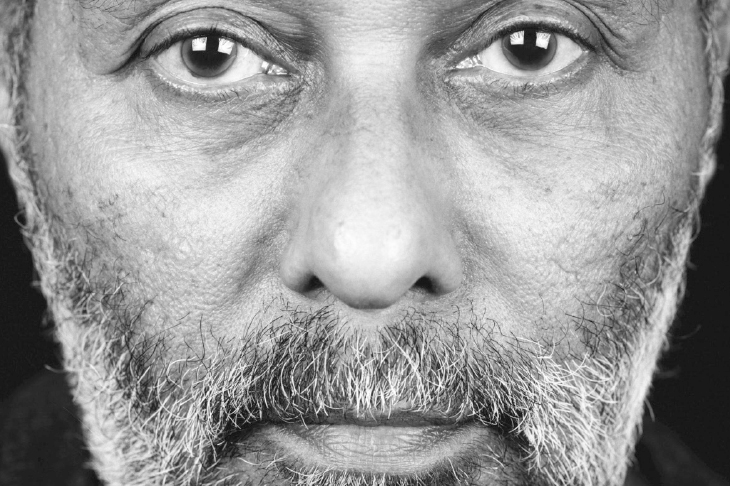
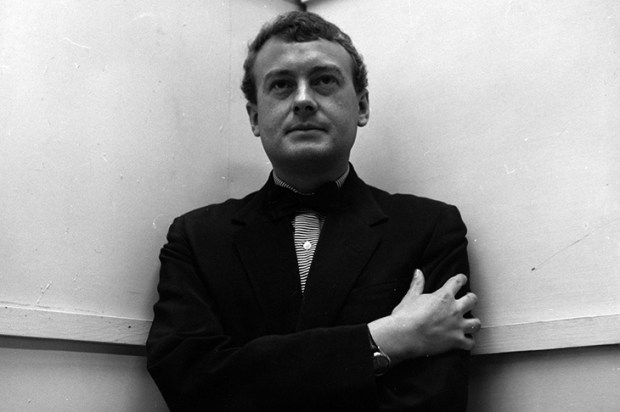
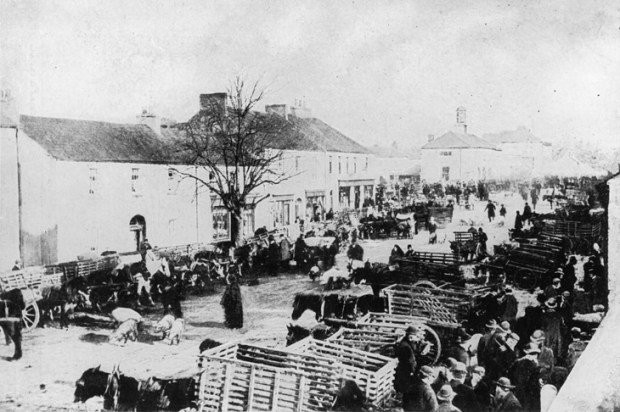
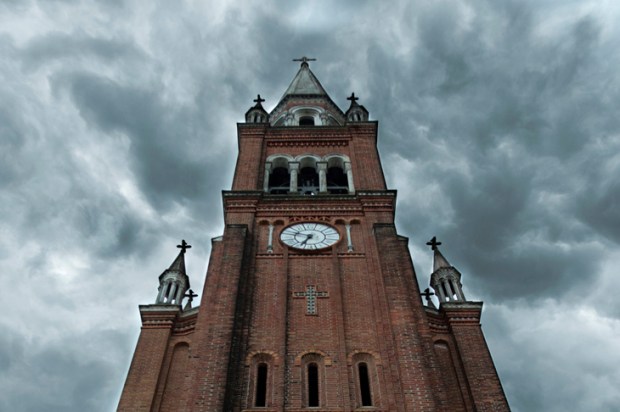
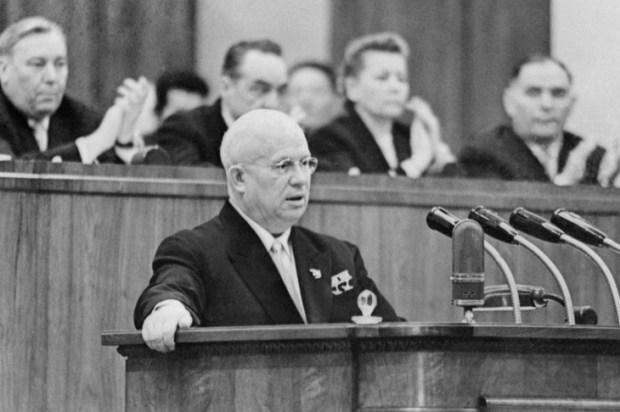








Comments
Don't miss out
Join the conversation with other Spectator Australia readers. Subscribe to leave a comment.
SUBSCRIBEAlready a subscriber? Log in